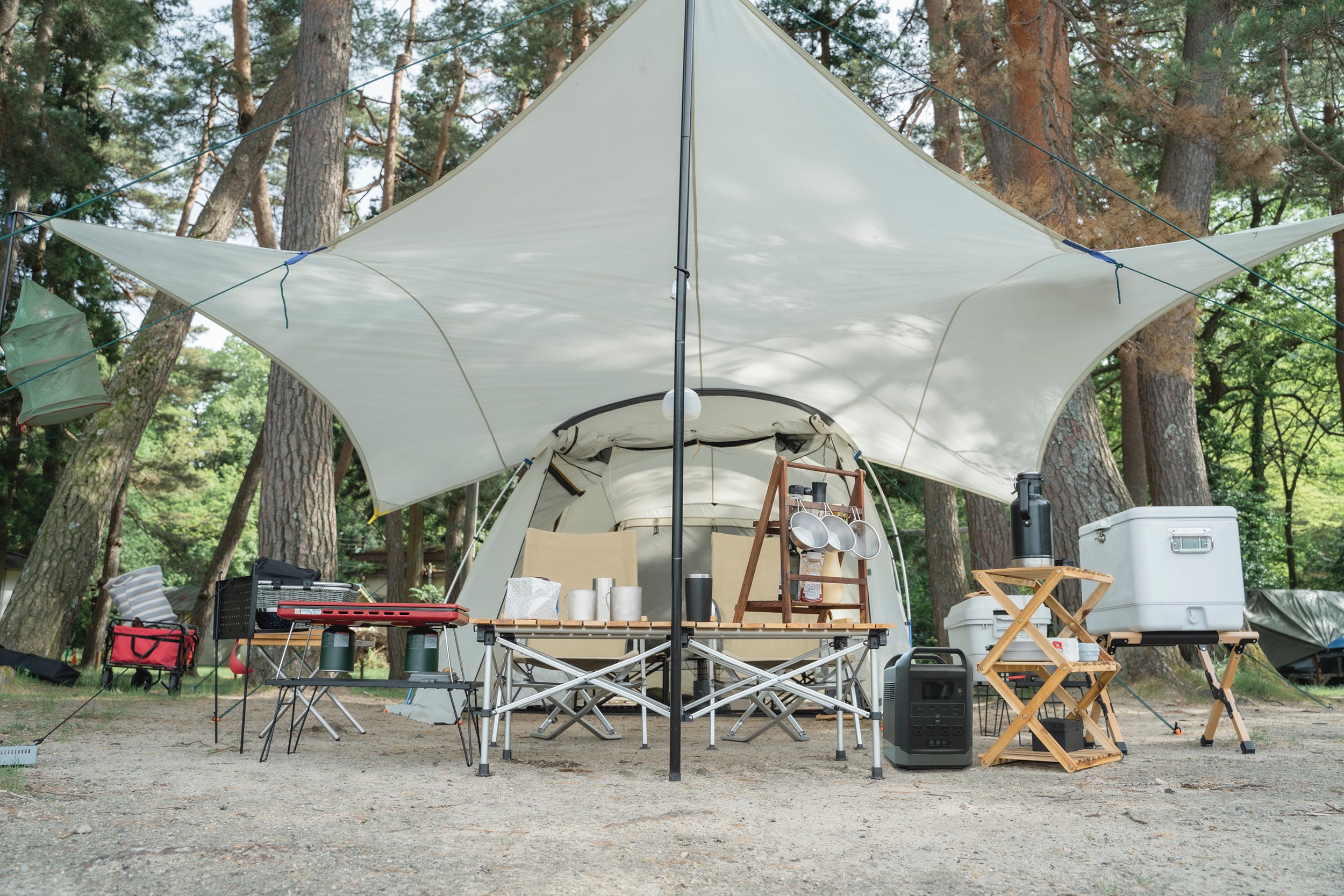Glamping vs. Traditional Camping: Which is Right for You?
Camping is a great way to get away from it all and enjoy the great outdoors, but not all camping experiences are created equal. Traditional camping and glamping are two popular ways to enjoy the wilderness, each with its own pros and cons. Let's take a closer look at each style of camping to help you decide which one is right for you.
Glamping
If you love the great outdoors but aren't crazy about roughing it in a tent, glamping might be the perfect solution for you. Glamping, short for "glamorous camping," is a luxury camping experience that combines the beauty and adventure of traditional camping with amenities. You can easily enjoy a camping experience without having to provide your own tents and camping equipment, and in some places, you can even enjoy hotel-like comfort and service.
Glamping has become increasingly popular in recent years as more people seek out unique and memorable travel experiences that allow them to connect with nature without sacrificing comfort or convenience. Glamping accommodations can range from luxurious tents and yurts to treehouses and even geodesic domes, each offering a unique and unforgettable experience.
Pros:
Comfort and luxury: Glamping offers the comfort and luxury of a high-end hotel, with plush bedding, stylish furnishings, and modern amenities.
Unique experiences: Glamping accommodations are often one-of-a-kind, providing unique and memorable experiences.
Less planning required: Glamping accommodations come fully equipped with everything you need, eliminating the need to bring your own equipment and supplies.
Cons:
Cost: Glamping is generally more expensive than traditional camping, as you are paying for the luxury and amenities provided.
Less authentic experience: Glamping may not offer the same authentic outdoor experience as traditional camping, as it is designed to be more comfortable and luxurious.
Limited flexibility: Glamping accommodations are often located in specific locations and may have limited availability, limiting the flexibility of your camping experience.
Traditional Camping
There's something special about packing up your tent, sleeping bag, and camp stove and heading out into the great outdoors for a traditional camping adventure. Traditional camping is a classic way to experience nature, and it's been a favorite pastime for generations. Whether you're a seasoned camper or a first-time adventurer, traditional camping offers a unique and rewarding experience that's hard to beat.
Pros:
- Authentic outdoor experience: Traditional camping allows campers to truly immerse themselves in nature and experience the wilderness as it is, without the distractions of modern life.
- Cost-effective: Traditional camping is generally less expensive than other types of camping, as campers provide their own equipment and supplies.
- Flexibility: Traditional camping offers more freedom and flexibility than other types of camping, as campers can set up camp in a variety of locations and are not tied to specific amenities or facilities.
- Bonding experience: Traditional camping is a great way to bond with friends and family, as everyone works together to set up camp, cook meals, and enjoy the great outdoors.
Cons:
- Limited amenities: Traditional camping lacks the comforts and amenities of modern life, such as electricity, running water, and comfortable bedding.
- More effort required: Traditional camping requires more effort and planning, as campers must bring and set up their own equipment and prepare their own meals.
- Weather-dependent: Traditional camping is weather-dependent, as inclement weather can make it uncomfortable or even dangerous.
Tips for a Successful Traditional Camping Trip:
- Choose the right campsite: Look for a campsite that meets your needs, whether you're looking for a remote wilderness experience or a family-friendly campground with amenities. Consider selecting a site with access to sunlight to maximize the potential of solar-powered devices.
- Pack properly: Make a list of everything you'll need, from shelter and bedding to cooking equipment and food. Don't forget to pack a reliable power source like the Marxon G1500 LiFePO4 solar generator. This portable power station can charge your phone, tablet, and other devices using the power of the sun, ensuring that you stay connected and powered up no matter where you are.
- Plan your meals: Decide what you'll be eating before you leave, and make sure to bring enough food and cooking supplies. With the Marxon G1500 solar generator, you can bring small appliances like a mini-fridge or small stove to keep your food and drinks cold or cook food. The Marxon solar generator will provide you with power for up to 12 hours.
- Respect nature: Leave your campsite better than you found it by packing out all trash and minimizing your impact on the environment. Consider using environmentally-friendly products, such as biodegradable soap, and rely on solar power instead of gasoline or propane to reduce your carbon footprint.

 USA
USA  Japan
Japan






































